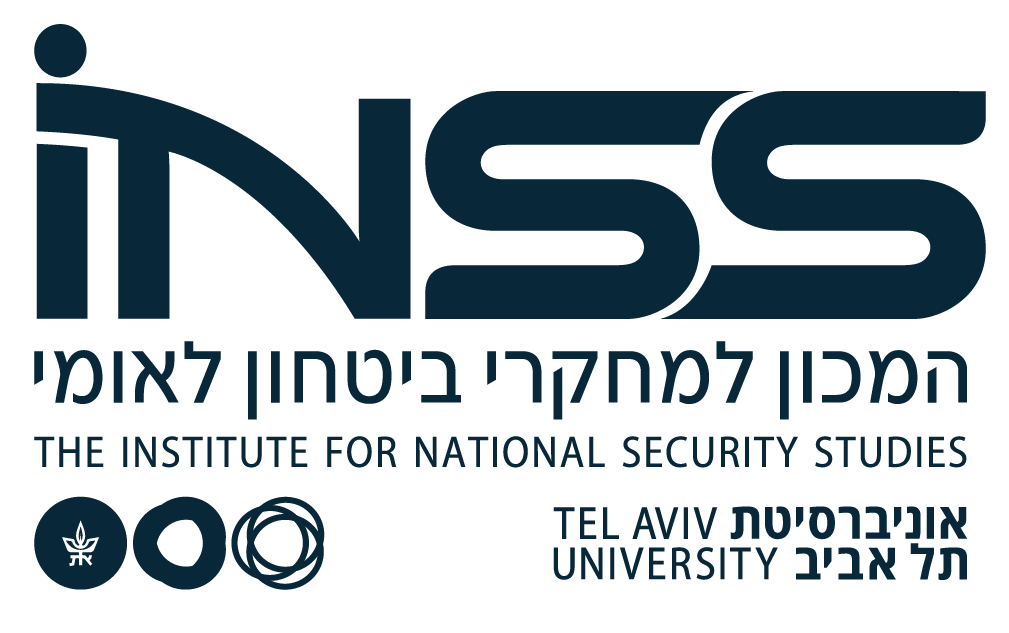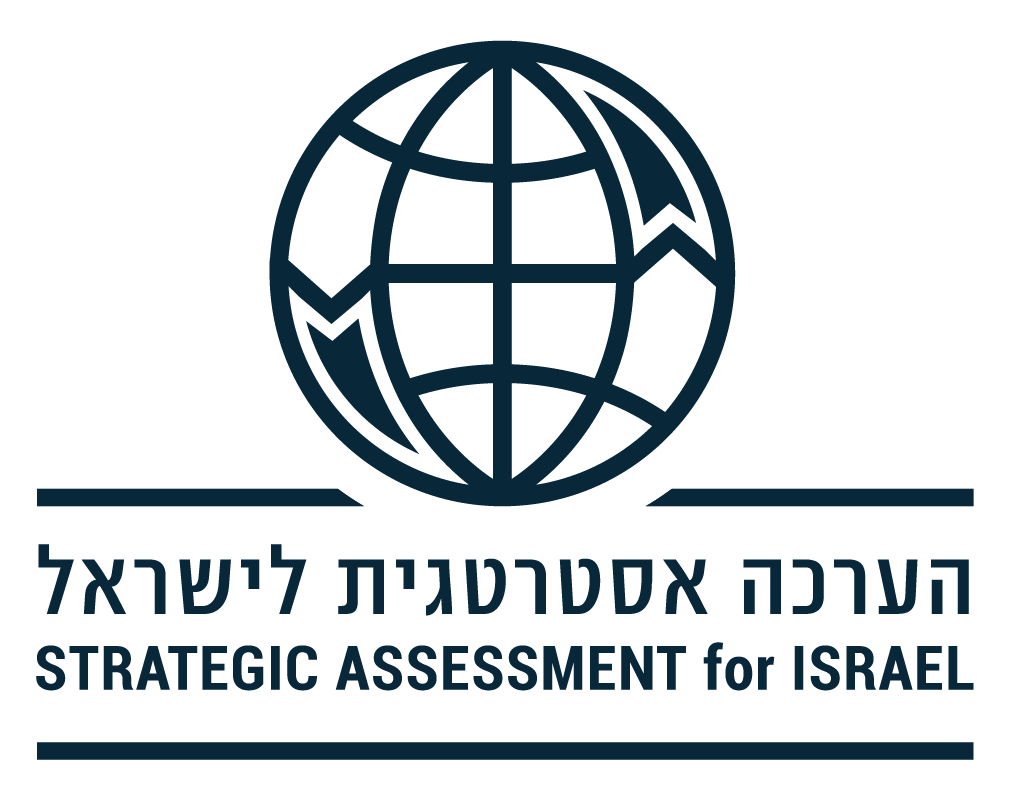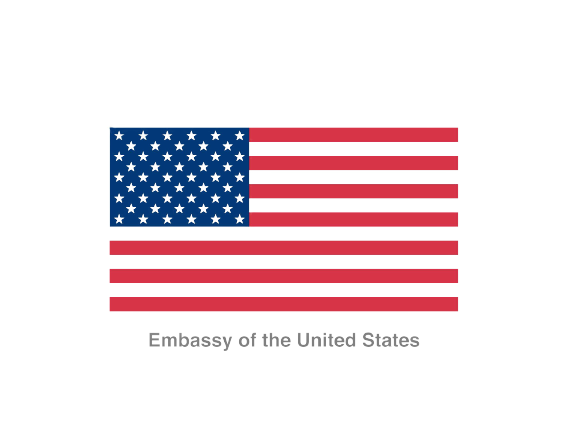Sessions
Speakers: Sir Frank Lowy, Chairman of INSS Board of Directors • Maj. Gen. (ret.) Amos Yadlin, Executive Director of INSS • Pinchas (Pini) Cohen, Chairman of INSS Israeli Board of Trustees.
The IDF is ready for any challenge, including an attack against Iran’s nuclear program, and whomever dares to harm us will meet the harshest response.
In his speech to the annual conference of the Institute for National Security Studies (INSS), IDF Chief of the General Staff Aviv Kochavi sought to outline Israel’s strategic and operational environment, present in general terms the IDF’s operational response and use of force, and address the challenge of Iran’s nuclear program and additional challenges of the current period, among them the Covid crisis.
In any given week, Kochavi noted, the IDF can be found operating extensively in enemy territory “A,” targeting a weapons manufacturing site, while attacking targets in the Gaza Strip, carrying out a commando operation in enemy territory “B,” returning to enemy state “A” to launch an attack aimed at preventing the transfer of advanced weaponry, while simultaneously carrying out operations and arrests in the West Bank and all the while thwarting cyber attacks. The complexity of such a situation requires precise intelligence and advanced capabilities in all of the relevant realms, with all the attendant risks.
The IDF, Kochavi explained, operates on multiple fronts – Syria, Lebanon, Gaza, the West Bank, and elsewhere – and in multiple dimensions – air, land, sea, cognition, electronic warfare, and cyber. Such a situation, in which a state needs to be operating on so many fronts and in multiple dimensions, is unprecedented and requires prioritization, alertness, and intelligence capabilities. With the exception of Iran, the fronts on which we are active lack comprehensive governance structures. In Lebanon, for example, Hezbollah – and not the Lebanese state – is determining the security of that country. Such a reality reduces Israel’s ability to operate as we would toward a sovereign state. Moreover, there are a number of struggles taking place in Israel’s vicinity – in Libya, in Lebanon, in Syria, and in Iraq the lack of adequate governance is permitting Iran to operate and transfer weapons there.
Kochavi continued, “I will describe what our enemies think of us. They perceive us as possessing high intel capabilities, and therefore themselves as infiltrated. Israel is perceived as a highly active player across the Middle East. Israel is seen as one who knows how to defend herself, one who takes initiative, and one who thwarts attacks.” All of this enhances Israel’s deterrence capabilities.
The security situation is improving and Israel’s deterrence has increased. In general, our enemies do not have an interest in initiating attacks on us. They are in reactive mode. We assess that currently none of our enemies intends or wishes to initiate a war or other widescale operation against Israel. “And they’re right,” Kochavi continued, “We have an intel presence across the region and broad operational leeway throughout the Middle East.” This is not an obvious achievement, and it facilitates a strengthened strategic position.
Israel and the IDF are strengthening their alliances. Kochavi stressed Israel’s relationship with the United States, which he characterized as extremely intimate. Even with Russia – a far less obvious achievement – Israel enjoys military coordination. And with Egypt and Jordan Israel continues to maintain strong security ties. In recent years, faced with the Iranian-Shiite axis extending through Iraq to Syria and Lebanon, there emerged a robust regional alliance stretching from Greece all the way to the Gulf states and including Israel therein. The Iranians see this alliance as a tightening ideational and strategic grip.
In Kochavi’s estimation, above all else is the test of defense and security. And in this respect, the IDF provided security and defense to the state of Israel this past year, “and that does not happen on its own.” Nonetheless, he highlighted several changes, chief among them those taking place within the “armies of terror” (i.e., Hamas and Hezbollah). These organizations are armies to the extent they possess military equipment and carry out military operations. And they are terrorists insofar as they are hiding in urban areas and seeking to harm Israeli civilians. The range, precision, and warheads of the rockets have increased. Hamas and Hezbollah also possess the forces to raid Israel and advanced weaponry such as cruise missiles.
Turning to the IDF’s operational response to such threats, Kochavi stated that the “campaign between the wars” will continue. Da’esh (ISIS), meanwhile, has not disappeared from the Middle East – not from Sinai, not from Jordan, and not from Egypt. The IDF’s operational response is focused on preventing the entrenchment of the radical [Iranian] axis in the northern front, improving the military’s readiness to operate in Iran, preventing the intensification of precision-guided weapons, and defending Israel’s borders.
The IDF must prepare itself to win wars and build the appropriate forces. In terms of defense, the last year was a successful one. The Gaza Strip was an example of a successful combination of military force and civilian policy. We arrived at this combination via effective military operations (“Operation Black Belt,” for example) and by taking out high value targets within the Palestinian Islamic Jihad (PIJ) and Hamas, while in parallel pursuing civilian policies including an increase in trade and Qatari assistance. In this sense, security is not simply the use of force. Security entails sticks and carrots, but the carrots come with conditions. If they do not return our POWs and missing persons, we will not ease the conditions in the Strip. “On this we will insist,” Kochavi said.
The “campaign between the wars” is a preventive war aiming to prevent a future war. In 2020 “we struck more than 500 targets, but there are other operations which do not entail strikes against targets – they are of a different kind,” Kochavi noted.
In the realm of preparation for war, Kochavi said, “the peak of the coming year will be a month-long wargame” comprising a widescale exercise on all fronts. He also addressed the “brigade as etrog” project, the goal of which is to fortify the IDF units “entering the alleyways of Shaja’iya and Nabatieh” with weapons, connectivity, and capabilities of the General Staff.
In 2019 the IDF, under the leadership of the Chief of the General Staff, launched a process of change required to achieve a decisive victory. “We formulated a concept which is serving as the compass of the multi-year plan.” At the heart of this concept is “the ruse and the fighting spirit,” but since the enemy is increasingly operating within population centers and threatening the home front, we must expose and destroy the enemy’s capabilities. The implication is that we need much better intelligence in real time and enhanced abilities on the part of our elite units. Thus, for example, a company officer will talk to a remotely manned drone, to a tank, and to an operational war room in Unit 8200. In this way we will achieve a higher degree of operational effectiveness.
In order to carry out our offensive operations, Kochavi said, we need legitimacy. We must change the paradigm for the use of military force given that the battlefield is increasingly urban space. The enemy intends to fire on Metullah and Afula and he has decentralized his capabilities in villages and in the Gaza Strip at the heart of population centers. We need to be adjusting the patterns of war and international law to such a challenge. Central to the IDF’s plan is the endeavor to expose and strike the enemy. Every fifth house in Lebanon is a weapons storage site. “We do not intend to part from the values of the IDF or international law,” he stressed, but those values also allow the IDF to protect Israeli citizens. The IDF, he continued, will strike only military targets.
There is no state that is threatened with as many rockets from as many directions as Israel. When war does come, we will see many rockets falling here, and we will face a difficult predicament in the fact of this threat. But the IDF is preparing to respond with fierce and widescale attacks in open territories and within urban centers replete with the enemy. This will prevent more significant harm against Israeli civilians. Thanks to our intel and attack capabilities, we will reduce the missile threat to Israel. There may be collateral damage, even as the IDF will abide by international law and warn the populations in advance, “and I am already warning the citizens of Gaza and Lebanon: the moment tensions break out, leave your locations, filled as they are with missiles and rockets.”
The IDF’s legitimacy stems from its targeting of military sites and the military advantage therein. “The combination of intelligence, firepower, deadly maneuvers, and a change in the approach to the use of force, the IDF’s attack will be effective,” Kochavi said.
Iran is a regional challenge and not simply an Israeli problem. Iran is supporting terrorism across the region and across the world. There is no doubt that Iran has built the capacity to become a nuclear state. Implementing the 2015 nuclear agreement would have enabled Iran to get to a bomb. Today Iran is building up a capacity which will enable it to break out to a bomb rapidly, in a matter of months or even weeks. The Iranians wish to return to the JCPOA. My position is that a return to the JCPOA of 2015 would be the wrong decision, operationally and strategically,” Kochavi stressed.
Relieving the pressure on the Iranians will allow them to further violate the current agreement. We must prevent Iran from obtaining the bomb. Iran can accelerate toward a nuclear weapon, despite international pressure. Therefore, Kochavi noted, the IDF has been preparing operational plans in this regard. Ultimately, the civilian leadership will decide whether to implement them, but those plans must be ready.
Regarding the Covid crisis, the Chief of the General Staff noted that the IDF had been intimately involved in the battle against the virus, in a way unmatched by any other army in the world. Concerning force build-up and the current budgetary challenges, Kochavi noted that the army leveraged internal resources for the benefit of build-up.
“Wars can break out unintentionally. We have also experienced this.” The missiles and rockets of Hamas and Hezbollah, Kochavi said, “are not sick with the coronavirus. Thus the IDF must remain prepared.”
“On a personal note,” Kochavi concluded, “as you all know, there are those generals who return from war and recount that they lost because they did not have all the resources and there were too many gaps. And there are those generals who return from war victorious, despite the difficulties. I implore us to adopt the second approach, even if it requires an uphill climb. It is my responsibility, and the responsibility of the IDF, to protect, to prepare for war, and to be victorious in war. On this task the IDF is focused, as am I.”
At the 14th annual international conference of the Institute for National Security Studies (INSS), General (ret.) Amos Yadlin, Director of the INSS, moderated a session entitled “Talking Normalization,” featuring three foreign ministers: Israeli Foreign Minister Lt.-Gen. (ret.) Gabi Ashkenazi, Dr. Anwar Gargash, the United Arab Emirates’ Minister of State for Foreign Affairs, and Bahraini Foreign Minister Dr. Abdullatif bin Rashed Alzayani.
The ministers focused on three main issues throughout the discussion:
- The commitment of the Gulf states to advancing the Israeli-Palestinian peace process
The Emirati and Bahraini foreign ministers addressed the need to advance Israeli-Palestinian peace negotiations on the basis of the Two-State Solution, noting that a resolution to the conflict remains essential to the stability of the Middle East. Dr. Gargash stated, “We hope that the Abraham Accords will assist in the efforts of the international community to advance the two-state solution and the establishment of an independent, viable Palestinian state.” Likewise, Bahrain’s foreign minister noted, “I hope that the momentum of the Abraham Accords will translate into a renewed progress toward a resolution of the Israeli-Palestinian conflict, on the basis of the principle of two states. The Abraham Accords created an incentive for such progress and put the brakes on steps that would have reversed the process.”
The Arab foreign ministers were keen to express their commitment – at least, rhetorically – to the Palestinian cause, and their hope that the Abraham Accords themselves offer a means of achieving progress on the Israeli-Palestinian front. As Minister Gargash noted, “We broke from this notion that you cannot bring about changes in the region. Peace and dialogue are the tools we are using to move forward… After 40-50 years we arrived at the conclusion that disengagement from Israel was not effective, but rather we could more effectively respond to our disagreements with her through dialogue, interaction, building of trust, and compromise.”
- Advancing normalization
All three foreign ministers conveyed the desire and the commitment to quickly realize the fruits of peace and normalization in a range of fields, including investments, business, tourism, technology, joint ventures, and others. According to Minister Gargash, “We are very interested in many aspects of Israel’s economy, and we’re keen to bring Israeli tourists to the UAE. We must give meaning to the peace for the average citizen – freedom of movement and more opportunities.” Minsiter Alzayani conveyed a hope that connections between the publics would advance, but he stressed that peace requires patience and demands that states create the environment conducive to the organic development of ties between these societies.
Foreign Minister Ashkenazi noted that the three countries are working on drafting over forty agreements which will form the basis of relations between them in a variety of realms. According to Ashkenazi, around 70,000 Israelis have already visited the Gulf since the normalization agreements, and over 1,000 Israeli and Gulf companies are engaged in some form of cooperation. He said that he sees positive momentum and a clear desire to advance both the political and the civilian sides of these agreements, and from his standpoint the agreements reflect an unprecedented process that is alleviating the broader Arab-Israeli conflict.
- Coordination surrounding the Iranian threat, including its nuclear and missile programs, and its malign regional influence
The remarks of all three foreign ministers highlighted the extent of agreement between them concerning the Iranian challenge, including the nuclear issue, the matter of ballistic missiles, Iran’s support for terror and its malign interference in states throughout the region. The foreign ministers agreed on the need to present a unified Israeli-Arab voice to the Biden administration, one which could dissuade the latter from returning to the JCPOA in its original form, with all its weaknesses and the lack of attention to the regional threats of Iran and its proxies. The Emirati and Bahraini foreign ministers also stressed that coordination and cooperation with Israel would increase these states’ leverage vis-à-vis the new administration in Washington.
Gargash added: “When the Biden administration weighs the possibility of re-entering the JCPOA, whether in its original or updated form, it must consider three key points: first, we are not only concerned about Iran’s nuclear program but also its ballistic missiles and its regional policies. Second, the only way to make progress is through political and diplomatic means. We need to give Iran incentive in the long-term to join the zone of stability and prosperity. And third, one of the failures of the JCPOA was the absence of a regional voice therein.”
Addressing the issue of Iran, Minister Alzayani stated: “I see many advantages to our countries presenting a unified voice to the new administration in Washington on matters of shared concern, in particular the matters of Iran, its nuclear program, its missiles, and its regional influence. A joint regional position on these issues will exert greater influence on the United States. Any future agreement with Iran will need to reflect the new reality in the region and be acceptable to all states in the region. We must ensure that any new agreement does not merely delay a nuclear capability for Iran, but it takes it off the table entirely. Furthermore, we must respond to Iran’s missile program, its support for proxies in the region, and its interference in the domestic affairs of states across the region, in order to bring about a broader peace and stability for the Middle East.”
Foreign Minister Ashkenazi, for his part, noted that Israel’s policy vis-à-vis Iran should rest on three pillars: a professional and intimate dialogue with the United States, keeping a credible military option on the table, and convincing the United States that a nuclear Iran and an Iranian push for regional hegemony pose a threat to the stability of the entire region. In his words, “The Abraham Accords strengthened the regional voice, and this will give greater weight to the region in designing potential solutions concerning the threats of Iran’s nuclear and missile programs.”






